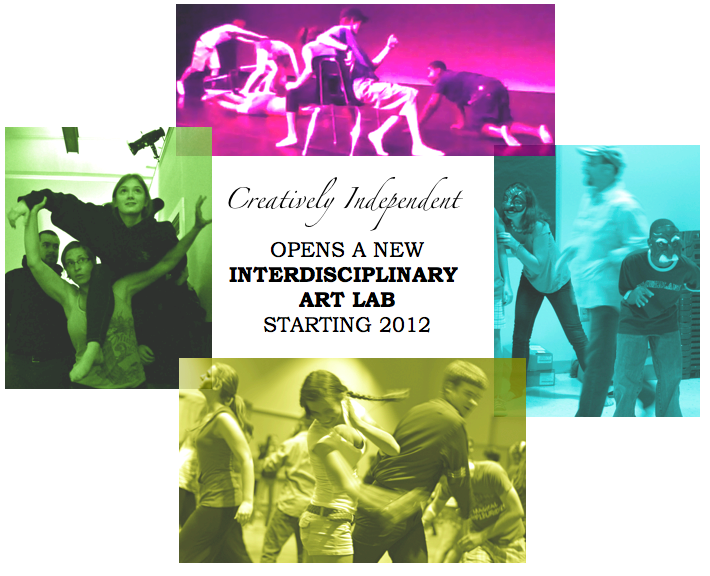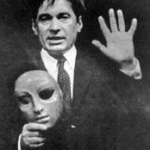
Teaching as an Art Form and a LAB
[fblike]
I was talking with my husband, Chris, and then later with a teacher friend of mine, Dewin, who is working on creating a new school format. We were talking about education, how we learn, how we teach.
When you asked by my Goddard advisor how soon I put what I’ve been learning into my classes, the answer is immediately. Chris reminded me that just a few weeks a go I talked to him about a chapter I read from Brecht’s writing. Through talking it out, I started to find the connective threads between his work, our current work and other teachers I’m researching like Lecoq. That next morning I offered the idea to incorporate an exercise based in Brecht’s work from that chapter – something I had configured through dreams and my morning
coffee talks with Chris and Griffin – directly into our workshop that afternoon at a performing arts high school residency. But this is not odd for us. This is the scary and inspiring part about how Chris and I teach through structure improvisation. We have an overall goal in mind during our residencies but how we get there and which exercises are needed… we feel that out depending on the students, their reactions to the previous exercises. We believe our job is to start the conversation through active play and then step in and out of the exercise to feel and see what is being accepted, what is being resisted and the ensemble dynamics.
Just last week, I was quoting Lecoq to a group of actors when working on neutrality. We were exploring a concept I’m developing with Chris called “AS ONE”, which taps into the collective consciousness as a form of devising theatre. Individuals were forcing movements on the group as opposed to staying in neutral and feeling what happens next. As a group, we tried different tactics to drop in to neutral and then I remembered what Lecoq said about neutral mask, “At the moment of neutral action, one does not know what one will do next, because anticipation is a mark of personality.” It tied in well to another thought of Lecoq’s,
“The neutral mask is a way of understanding performance, not a way of performing.”1
These two quotes helped me get to the core of what many actors were feeling: the anticipation that forced the improvisation and the confusion that that exercise was a performance. Many theatre classes have the silent understanding that rehearsals, scene work, etc. are done with the same intention as a performance. I have to remind myself of this when in classrooms because that is so far from the truth of creating art. The classroom, rehearsal hall or lab is where one must try anything and everything for the sake of the exercise or tool to be explored not for the sake of an audience. That is another, very important, but additional step in the process; one that is often jumped to for the sake of energy or treat-oriented teaching.
Lecoq developed an evening lab outside of his school, though students could take it in addition to their daily classes. It was open to the public and co-taught with Lecoq and architects. It explored space, structure and movement. Lecoq acted as if this lab was entirely separate from his school but many students that took both programs could see how something being explored in the lab would drip into daily classes in a different form. This lab was essential for Lecoq to continue exploring and thus shifting and evolving his point of view and teaching practice. He might have kept it separate in his brain for many reasons. I wonder if one might be to keep his experiments in the moment. If he knew consciously that the lab work would influence his teaching he might not have explored as deeply or taken the same risks. He may have looked for the context too soon, thus shutting down the discovery process. All this to say: I feel the need to physically put the work I’m doing at Goddard into the work I’m doing in the world. It is how I make it my own and get it out of theory.
1 Murray, Simon. Jacques Lecoq. New York: Routledge, 2003.


Comments: 1
Jess,
This is wonderful and dead on… Thank you for the constant reminders about exploration and process. i love it!
Comments are closed.